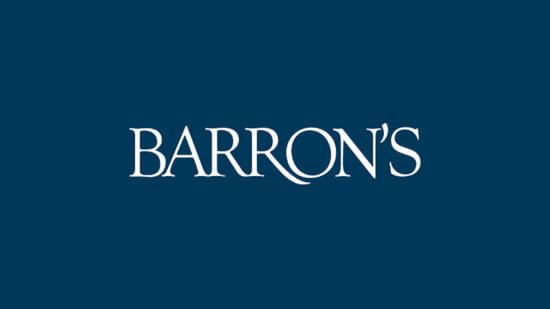
Foster financial stability and deepen family bonds with Family Legacy Planning to ensure the transmission of values across generations.
When financial advisors help their clients plan for the future, the focus is often on passing down wealth. However, for many families, a comprehensive legacy plan extends beyond financial assets. Family legacy planning is about passing on stories, values, and wisdom accumulated over generations. It’s a thoughtful approach to ensuring that heirs not only inherit wealth but also gain an understanding of their family’s history, values, and beliefs. This personal aspect of legacy planning is just as important as ensuring financial security.
For financial advisors, helping clients create a legacy that incorporates both tangible and intangible assets can be an incredibly rewarding experience. By guiding families through this process, advisors can offer their clients more than just financial advice; they can help them create a lasting impact for generations to come.
Overcoming Common Roadblocks in Legacy Planning Conversations
One of the most challenging aspects of family legacy planning is initiating conversations with heirs about the future. Many clients feel uncomfortable discussing money with their children or grandchildren, whether out of fear of conflict, concerns over privacy, or uncertainty about how to begin. Financial advisors play a crucial role in breaking down these barriers by facilitating open, honest discussions between clients and their heirs.
These conversations don’t have to be limited to numbers and inheritance. Advisors can encourage clients to share their life stories, values, and philosophies with their families. This creates a meaningful dialogue that helps heirs understand not only what they are inheriting but also the family values that have shaped their parents’ and grandparents’ lives. Advisors can also provide tools and resources, such as conversation guides or templates for family meetings, to help make the process more approachable.
By starting with conversations about family stories and values, rather than jumping straight into financial details, advisors can help ease their clients into legacy planning discussions, making it more likely that their heirs will understand and appreciate the significance of their inheritance.
The Family Legacy Letter: A Powerful Tool for Clients
An essential element of family legacy planning is the creation of a family legacy letter, also known as an ethical will. Unlike a traditional will, which is a legal document that distributes financial assets, the family legacy letter is a personal document that conveys the client’s values, beliefs, and life lessons to their heirs. It provides a way for clients to pass on the non-material assets they have accumulated throughout their lives.
The family legacy letter is not legally binding, but its significance should not be underestimated. It can build trust between generations, foster a sense of belonging, and help heirs understand the guiding principles behind the financial decisions made by their parents or grandparents. This type of letter often contains personal reflections on life experiences, important milestones, and the values that shaped those experiences.
For many clients, the process of writing a legacy letter can be deeply therapeutic. It allows them to reflect on their life journey and articulate the lessons they want to pass down to their children and grandchildren. Financial advisors can encourage their clients to consider creating a legacy letter and provide guidance on how to begin the writing process. By asking questions about pivotal life moments, meaningful relationships, or significant life lessons, advisors can help clients get started on a document that will resonate deeply with their family.
Creating a Family Legacy Letter: A Step-by-Step Guide
While writing a family legacy letter can seem daunting, it doesn’t have to be. Advisors can help their clients approach this task by breaking it down into manageable steps:
- Reflection: Encourage clients to take time to reflect on their life experiences and the values that are most important to them. They may want to think about what wisdom they would like to pass on to their heirs.
- Identify Key Themes: Clients can identify key themes they want to communicate in the letter, such as family values, personal philosophies, life lessons, or stories from their past that shaped who they are today.
- Write in Their Own Voice: The family legacy letter should feel personal and authentic. Clients should be encouraged to write in their own voice, using language that reflects their personality. This makes the letter more meaningful for their heirs.
- Include Specific Wishes: If there are specific wishes or instructions clients want to convey that go beyond their legal will, the legacy letter is a place to do so. This could include advice on philanthropy, encouraging certain family traditions, or expressing hopes for the future.
- Involve Family Members: Creating the family legacy letter can be an opportunity for clients to engage with their family members. Advisors can suggest that clients involve their heirs in the process, which can help foster a deeper connection and understanding across generations.
The Role of the Financial Advisor in Legacy Planning
Advisors are uniquely positioned to help their clients with more than just financial planning. By incorporating discussions about family legacy letters and helping clients plan for their intangible assets, advisors can offer a holistic approach that goes beyond traditional financial advice.
Family legacy planning presents an opportunity for advisors to strengthen their relationships with clients. By guiding them through this process, advisors can help clients preserve their stories, values, and wisdom for future generations, ensuring their legacy is about more than just the transfer of wealth.
Moreover, facilitating these conversations allows advisors to build stronger, multi-generational relationships with their clients’ families. Advisors who take the time to help their clients pass on their values, stories, and philosophies are not only preserving the financial security of future generations but also contributing to the preservation of a family’s culture and legacy.
Conclusion
Family legacy planning is a powerful way for clients to pass on more than just their financial assets. By creating a family legacy letter, clients can leave their heirs with a deeper understanding of the values and wisdom that have guided their lives. Financial advisors can play a crucial role in facilitating these conversations and helping clients plan for their family’s future in a way that extends far beyond the transfer of wealth. In doing so, advisors help create legacies that are rich in both financial and intangible assets, ensuring that the stories, values, and lessons of today will continue to shape the future.
For More Information, Thornburg offers a Managing Legacy Wealth program for Advisors and Clients.
Discover more about:
More Insights

Thornburg Investment Income Builder Fund – 1st Quarter Update 2025

Taiwan Semi, Tencent, and Other “Quality” Favorites

Investor Spotlight: The Municipal Bond Tax Exemption

Thornburg’s History of Recognition

International Equity: The Power of Global Diversification
